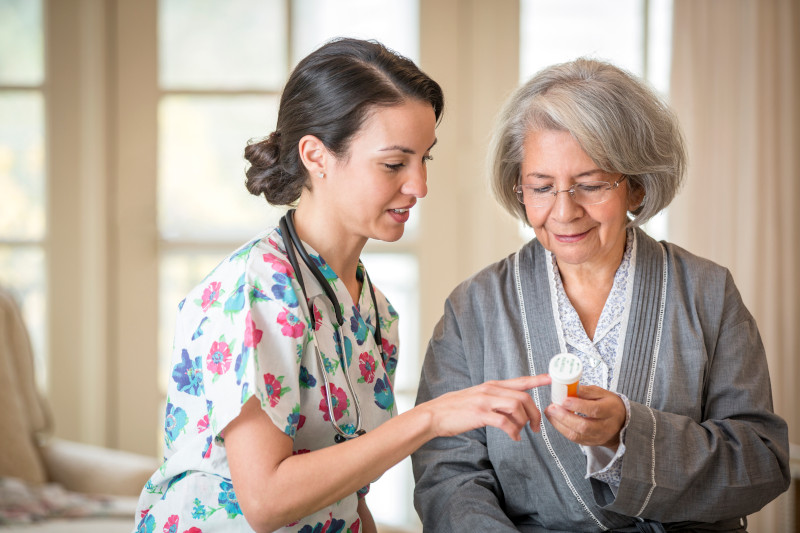AARP Hearing Center

Week 2 of the 2024 South Dakota legislative session is in the books, and the pace in Pierre is picking up!
House Bill 1013
With AARP South Dakota’s support, House Bill 1013 (HB 1013), which adopts the Advanced Practice Registered Nurse (APRN) Compact, has passed both the House Health and Human Services Committee and the House of Representatives this week. It now moves to the Senate for consideration.
South Dakota faces pressing healthcare challenges—an aging and diverse population, more people with more chronic conditions, millions more uninsured, rising costs and a shortage of providers. We can help address some of these challenges by maximizing the use of APRNs to tackle healthcare challenges in access, quality and cost which is why AARP South Dakota supports HB 1013.
The APRN Compact would streamline access and provide additional choices to patients and families by cutting red tape so APRNs can more easily deliver care across state lines. The APRN Compact also promotes safety and quality. It codifies uniform standards, ensures that states have the authority to enforce public protection at the state level and makes it easier to exchange information among member states when issues arise.
AARP South Dakota believes the enactment of the APRN Compact will enhance and improve healthcare access in frontier and rural communities across South Dakota, supporting patients and the nearly 80,000 family caregivers who help keep their loved ones safe and independent in their communities. The APRN Compact is also a commonsense way to facilitate greater telehealth options making it easier for patients to receive care when and where they need it.
Healthcare provider shortages hit older residents hard. Older adults sometimes lack the ability or resources to get to their appointments because of mobility issues, long travel distances to a provider, and wait times for appointments. This risks their health and adds unnecessary stress to family caregivers. Once implemented, the APRN Compact would encourage APRNs to provide care both in-person or through telehealth technologies in multiple states, connecting patients and their family caregivers with qualified primary care. APRNs are a highly valued and integral part of the healthcare system and a crucial source of support for family caregivers. They are registered nurses with a master's or doctoral level education trained to provide advanced health care services, including primary and preventative care.
House Bill 1016
On Thursday, AARP South Dakota testified in favor of House Bill 1016 (HB 1016) which conducts a feasibility study on the Medicaid Program of All-inclusive Care for the Elderly (PACE). The bill unanimously passed the House Health and Human Services Committee and now moves to the Joint Committee on Appropriations for consideration.
Individuals enrolled in PACE receive integrated care from an interdisciplinary team of healthcare and social services professionals. Participants have access to a comprehensive range of services, including adult day care, medical care, physical and occupational therapy, dental care, nutrition counseling, prescription medications, and long-term services and supports (LTSS).
Nationwide, most PACE participants (87 percent) are dually enrolled in Medicare and full Medicaid. Studies show PACE participants have lower rates of hospital stays and readmissions, increased care quality, improved quality of life and lower mortality rates when compared with similar individuals not enrolled in PACE. Research also shows the PACE model has been successful at enabling adults with complex needs and chronic conditions to live at home and avoid or delay nursing home admission.
Family caregivers of participants report high satisfaction rates and lower caregiver burden because of PACE. A 2018 survey based on 30 PACE centers across the country found that 96 percent of family caregivers were satisfied with the support they received through PACE, and 98 percent would recommend PACE to others. More than half of family caregivers (58 percent) reported experiencing less caregiver burden after the care recipient enrolled in PACE.
HB 1013 and HB 1016 were recommendations from the legislature’s summer study committee on Long Term Care, and AARP South Dakota served on the Home and Community-Based Services (HCBS) workgroup within the Long Term Care committee.
Lobby Day is Coming Soon!
We hope you will be involved as an advocate in South Dakota. From time to time, we may provide opportunities for you to contact elected officials. And, we are excited that we can once again host an in-person Lobby Day in Pierre on Tuesday, January 30. We still have room if you would like to join us, and there will be buses leaving from several locations across the state. Register before January 23.
Connect with Lawmakers at Legislative Cracker Barrels
Another great way for you to make your voice heard, along with sending emails or making phone calls, is to attend local legislative coffees or "cracker barrel" sessions held on the weekends when legislators are back in their home districts. We have compiled information on some locations that have already announced upcoming cracker barrel sessions.
Is your community hosting a cracker barrel event? Email us the information at mailto:sdaarp@aarp.org, and we will update our list.































































